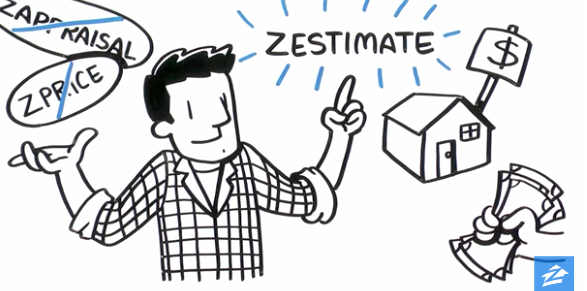The Zestimate, Zillow’s algorithm-based property estimate tool, has long been a source of frustration for agents and those listing their homes. Now, the feature on Zillow’s popular website has officially come under fire, as two lawsuits against the online real-estate marketing giant claim that the property estimates undermine a homeowners’ ability to sell their home.
A lawsuit filed by a suburban Chicago homeowner (and real estate lawyer) claims that, not only are the Zestimate’s often inaccurate, they are also illegal under Illinois law, writes the Washington Post. According to state law, those giving real estate appraisals must be licensed to do so.
A second lawsuit filed in Illinois says that the Zestimates are habitually undervaluing homes and therefore negatively effecting a homeowners ability to sell at what they believe is a fair price, according to Crain’s Chicago Business. That suit, filed by a suburban family-run development company, is seeking class action status, according to the publication. The Glenview attorney, Barbara Andersen, is now seeking to dismiss her suit and is representing the developer in their class-action case.
Disclaimers abound
Zillow’s Zestimate is an automated, market-value evaluation for virtually every home in the country that appears automatically on a home’s profile page. The real estate marketing company is quick to add disclaimers, saying on their site that it is not an appraisal but that the number should be used “as a starting point to determine a home’s value.” In the Washington Post, a Zillow spokesperson has described the suits as “without merit.”
Right next to a property’s Zestimate is a link to challenge that figure. Zillow is upfront about the accuracy of it’s Zestimates: they are within 5 percent of the sale price 53.9 percent of the time, according to the Washington Post. Such an error can lead to “tens of thousands of dollars – hundreds of thousands in high-cost areas,” in lost sales, the paper said.
Despite such disclaimers, the tool is generally considered a reliable estimate for the home-buying public, much to the detriment of sellers and the housing industry. In both suits, the plaintiffs allege that their property’s Zestimate was significantly lower than their appraisals and local home sales. The algorithm-based estimate does not take into account local market knowledge that tends to ebb and flow, like floorplans, design elements and amenities, according to Crain’s
“We get it all the time: Zillow says this is what my property is worth, so that’s what it’s worth,” Peter Poulos, president of the Metron Group, a real estate appraisal company in Chicago. “To the trained appraiser’s eye, we know that Zillow uses an algorithm to estimate the value of millions of properties, but to the consumer, it’s easy to mistake that for an appraisal.”


We were trying to sell my mother’s lake home in IN via “sale By Owner”. They came up with a Zestimate figure of One hundred thousand dollars less. I emailed them on several occasions and was finally told that they would review the information, thesale figure and get back with me, which they never did. The comparisons were laughable! Does this so called team of people, know what lake property is or do they just pull a figure out of the sky. They definitely did not use the tax assessment. We now have it listed with a realtor and they have it up for fifteen thousand dollars above the original price we were asking. I am going to be contacting the attorney general for the state of IN. I am hoping to cause some issues for this unethical company. If you have any additional information that would be helpful, please email me back. Thank you